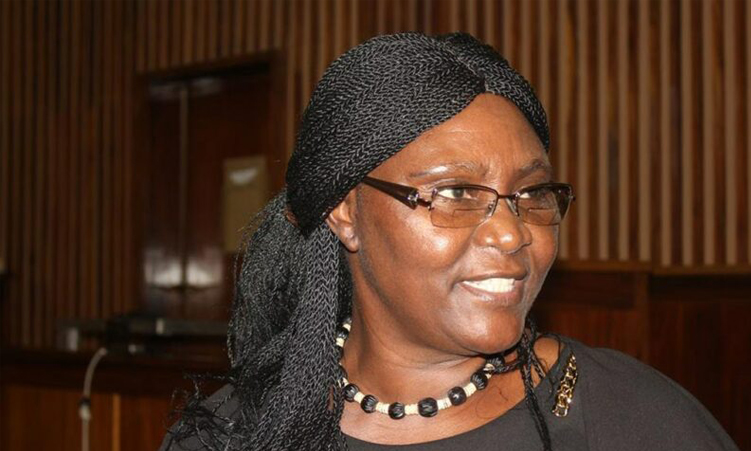The prosecutor general has lost a Supreme Court appeal through which she attempted to have money in bank accounts allegedly linked to illegal trading in foreign currency declared forfeited to the state.
In a judgement delivered in the Supreme Court last week, the court found that the prosecutor general (PG), Martha Imalwa, was not able to show on a balance of probabilities that the close corporation Rhapsody Investments and one of its members, Angolan citizen Alexes Paulo, sold foreign currency to their clients or that they contravened the Exchange Control Regulations of 1961.
The court also found that the PG did not prove her allegation that Paulo contravened the Immigration Control Act when he conducted the affairs of his close corporation in Namibia without a work permit, and that as a result of that alleged illegality he and Rhapsody Investments received the proceeds of unlawful activities into their bank accounts.
With its judgement, the Supreme Court dismissed an appeal by the PG against a High Court judgement in which an application by Imalwa for the forfeiture of money in bank accounts of the close corporation and Paulo was refused in March 2021.
Imalwa initially applied for a Prevention of Organised Crime Act property preservation order in respect of three bank accounts of the close corporation and one account of Paulo in December 2015.
The High Court granted the preservation order, and Imalwa subsequently applied to have the funds in the four accounts forfeited to the state.
That forfeiture application was not successful.
In the Supreme Court’s judgement, appeal judge Sylvester Mainga said asset forfeiture is a serious matter, and a court cannot declare an asset as forfeited to the state on the evidence that Imalwa presented to the High Court.
Mainga recounted that the police launched an investigation after Standard Bank Namibia reported a transaction by Paulo, who had made a deposit of N$1,8 million into an account of Rhapsody Investments in November 2015.
Paulo stated on a deposit slip that the source of the N$1,8 million was “business”, and also presented a receipt showing he had exchanged US$120 000 at another bank for about N$1,74 million the previous day.
In an affidavit filed in the High Court, though, Paulo stated that he applied to Bank Windhoek, which is an authorised dealer in foreign currency, to buy foreign currency from the bank for clients of his close corporation who needed the money to do business at Oshikango.
The bank did not inform Paulo that his plan to provide foreign currency to Rhapsody Investments’ clients at Oshikango would be unlawful or violate the Exchange Control Regulations, Mainga noted.
He added that Paulo bought US dollars from an authorised dealer within the regulations, and there was no evidence before the High Court that showed he and his close corporation concluded contracts in terms of which they sold US dollars to clients.
According to the evidence before the court, Paulo said he assisted clients to obtain US dollars from banks in terms of the Exchange Control Regulations, Mainga said.
He added that even if Paulo lied to the bank when he made the deposit of N$1,8 million, a conclusion that the money came from illegal activities is not the only inference that could be drawn from such a lie.
Mainga concluded that the PG did not have sufficient evidence to support her allegation that Paulo and his close corporation contravened the regulations.
Deputy chief justice Petrus Damaseb and appeal judge Elton Hoff agreed with Mainga’s judgement.
The PG was represented by Mariette Boonzaier and Annerie Keulder when the appeal was heard in March this year.
Lawyers Sisa Namandje and Sacky Kadhila Amoomo represented Paulo and Rhapsody Investments.
Stay informed with The Namibian – your source for credible journalism. Get in-depth reporting and opinions for
only N$85 a month. Invest in journalism, invest in democracy –
Subscribe Now!








